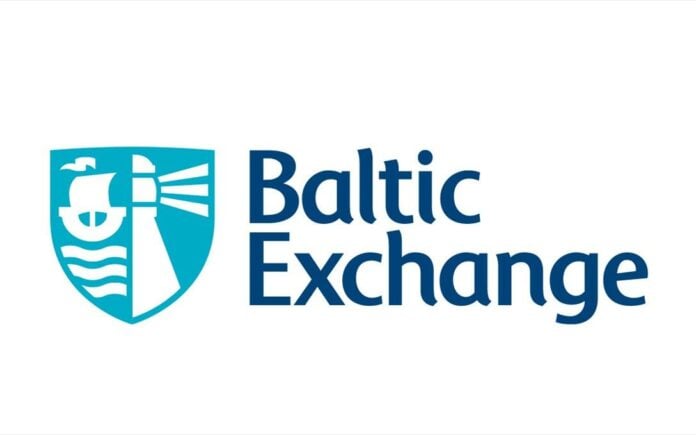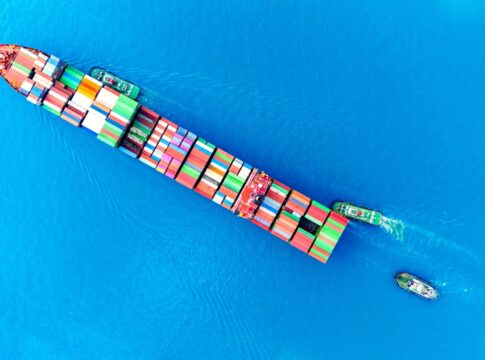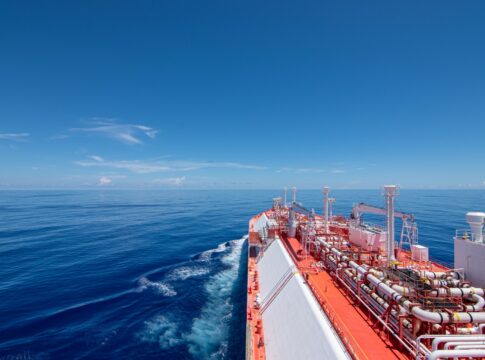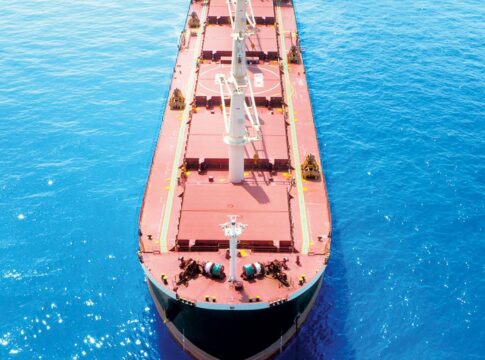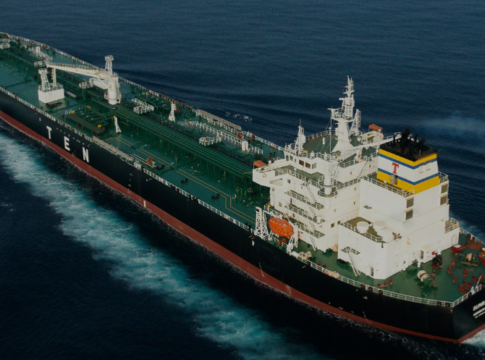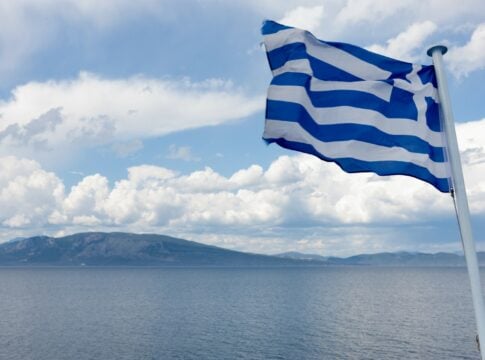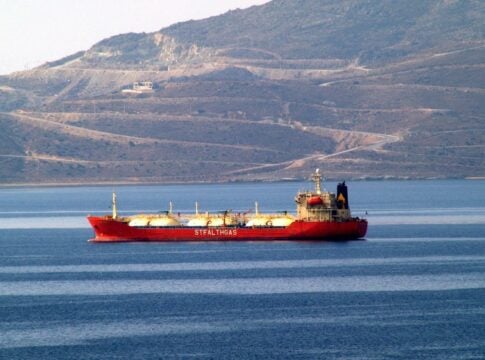Baltic Exchange Dry Index (BDI) curve 13 May – 17 May
Capesize
The market continues to ebb and flow with a generally positive up trend. The Capesize 5TC opened with upward momentum from last week’s $11,621 and nudged to over $12,000. It then dropped to $11,705, however, by close it rallied to $11,909. West Australia to China ore run followed a similar pattern from high $6.00s, before losing 50 cents, ending the week marked around $6.50.
News was heard overnight Thursday that Brazilian miner, Vale, advised prosecutors that another dam in the State of Minas Gerais is at risk of rupturing within the following week. This prediction was based on current movements at the dam. The mine hasn’t been active since 2016, as such, iron ore market flows would not be expected to be affected. Vale has raised its level of alert for the surrounding area. While getting ahead of possible incidents with warnings and evacuations is good to hear, the market is now questioning when these dam sagas will end and business as usual can be resumed.
Baltic Exchange Capesize Index (BCI) curve 13 May – 17 May
Panamax
A busy start to last week saw the Baltic Panamax Index (BPI) 4TC average rise steadily to over $10,000 from around $9,500 at the end of the preceding week. South America was again the main focus, with modern Kamsarmaxes now traded in excess of $16,000, plus $600,000 ballast bonus. That said, most of the reported trades had been concluded on a Dropping Outward Pilot station (DOP) basis, or, passing Singapore. A particularly well described unit achieved a high of $15,000 for the round voyage. The North Atlantic was said to be well balanced, with slight increases in transatlantic trades in line with the improved front haul rates. The Pacific market was helped greatly by South American activity, combined with a preference for trips into India. This meant rates for trades within the area jumped midweek. A lack of fresh enquiry at the end of the week had many pointing towards a correction. Nonetheless, period discussions had increased.
Baltic Exchange Panamax Index (BPI) curve 13 May – 17 May
Supramax
The Baltic Supramax Index (BSI) started the week in upward mode, but petered out as the week closed. Limited fresh period activity surfaced, but a 52,000dwt vessel, open US Gulf, was rumoured fixed for four to six months trading, with redelivery Arabian Gulf-Japan in the $12,000s. The Atlantic saw better levels from some key areas including the US Gulf. A well described 60,000dwt ship fixing around $19,000 from here with redelivery in Japan. As the week continued, pressure was surfacing from East Coast South America, with a lack of prompt tonnage. A 53,000-tonner fixed basis delivery Up River for front haul in the high $12,000s plus high $200,000 ballast bonus. There was increased activity from the Indian Ocean, where a 63,000dwt ship fixed delivery South Africa and redelivery West Coast India at $13,400 plus $340,000 ballast bonus. Further east, it was finely balanced, with a 56,000dwt open Panjang fixing at $10,500 for a trip via Indonesia, and redelivery China, at $10,500.
Baltic Exchange Supramax Index (BSI) curve 13 May – 17 May
Handysize
Overall, it was a week of continuous improvement in the Handysize sector. Rates started the week flat, with mixed feelings in the Atlantic basin, but the sentiment started to grow slightly more positive in the Continent-Mediterranean-Black Sea areas after the recent weeks of lower fixtures. Brokers also noticed potential signs of tightening tonnage list from East Coast South America going into next week. A 33,000-tonner open Recalada was booked for a trip to the Baltic at $8,750 early in the week. A similar-sized ship was fixed for the same delivery to Morocco at $9,000 at a later stage. On the Continent, a 38,000dwt box type was fixed from Brake to the US Gulf at $8,000. Whilst in the east, large Handysize vessels were achieving in the region of $7,000s basis Singapore delivery for round trips with Asia redelivery. It was rumoured similar levels were being fixed for China-Japan delivery and redelivery Southeast Asia.
Baltic Exchange Handysize Index (BHSI) curve 13 May – 17 May
Tanker market report
VLCC
Despite healthy enquiry, rates have only modestly nudged up, with 270,000mt from the Middle East Gulf fixed at WS 40 and WS 42 to China. Yeosu discharge subsequently went at WS 39.75. Going west, the market remained steady at just under WS 19 Cape to Cape for 280,000mt to the US Gulf. West Africa to China basis 260,000mt is now hovering at WS 40.5, up 2.5 points from last week. US Gulf to China was fixed at $4.575 million. Hound Point to Korea was concluded by Litasco at $4.25 million.
Suezmax
An excess of tonnage saw the market in West Africa dip down to WS 60 basis 130,000mt to Europe and remains under pressure. Sparse enquiry in the Black Sea saw a softer sentiment, with the market now assessed 2.5 points lower at around WS 75 region for 135,000mt.
Aframax
In the Mediterranean, rates were steady at around WS 107.5 for 80,000mt from Ceyhan, before BP fixed the ‘Lillesand’ at WS 100. The Black Sea fell 10 points to WS 105, while the Baltic market basis 100,000mt dropped over 22 points to WS 75 level. The 80,000mt cross North Sea trade moved in tandem, easing from WS 120 at the start of the week, to WS 107.5. In the Caribbs, the up-coast market for 70,000mt enjoyed a positive week gaining 35 points to WS 112.5.
Clean
Middle East Gulf/Japan for 75,000mt held at WS 107.5, whilst rates for 55,000mt hovered close to WS 120 level. Another disappointing week in the 37,000mt Continent/USAC trade saw rates lose around 15 points to WS 105. For 38,000mt from the US Gulf to UKC, rates initially eased five points to WS 87.5, before recovering to WS 95.


